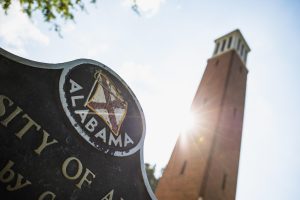OPPOSING VIEWS: Theology shouldn’t be subject to political climate
January 27, 2020
United Methodist Church (UMC) leaders have proposed a deal to resolve the tensions the denomination has experienced over the issues of LGBT clergy and marriage ceremonies. This deal allows UMC churches with a conviction favoring exclusively heterosexual clergy and families to create a new denomination while retaining their buildings and financial assets.
The UMC is under national scrutiny for this potential split. The criticism directed at their conservative adherents concerns me deeply. I support the concept of a religious entity strongly favoring heterosexuality as the moral relational standard because of the importance of orthodoxy in religion, what some view as the objective benefits of a heterosexual faith community and the necessity of diverse theological expression.
Religion is fundamentally an expression of orthodoxy. Historically, the Bible has been used to support and affirm heterosexual unions as the God-designed foundation of families, churches and society. It was not until modern times that the Bible was reinterpreted on a larger scale to support homosexuality.
According to the Public Religion Research Institute, only 28% of white evangelical Protestants, 25% of Hispanic Protestants and 38% of black Protestants favor LGBT marriage. Conversely, 62% of white mainline Protestants and 60% of Catholics favor LGBT marriage. The Christian faith traditions with the least regard for strict biblical fidelity and historic orthodoxy are those with the greatest degree of tolerance for cultural standards of sexual ethics.
Any religion that bends entirely to the whims of culture has no authoritative grounds on which to claim the mantle of truth. Objective standards, by nature, offend those who dislike the implications of those truths in their lives. Either there is a god with standards determined by the institution he represents, or there is not. To claim religiosity with a universalist perspective on moral standards is foolish. Orthodoxy plays an important role in religion, particularly Christianity, in that it reflects a god with universal moral standards. The conservatives within the UMC understand this principle.
The support of exclusively heterosexual relationships makes logical sense in my mind. Biologically, males and females are built so their procreative union perpetuates the human race. Further, the biological strengths of each make them well-suited as balanced pairs. In my view, having a mother and father in the home gives children clear models for conduct while also giving insight into how the opposite sex operates. Heterosexual relationships represent a defensible archetype for families and societies rooted in the fact that they’ve been working for thousands of years. The conservatives within the UMC seem to have an argument from nature for their position, theological premise aside, and thus, they have a reasonable ideological position.
Conservative Christians need not be policed from a progressive ivory tower. Theological unity is not conformity to an elite liberal theology, but cooperation for societal good with clearly defined differences between systems of faith. In such an environment, dialogue is encouraged and ministry to others is maximized. I applaud the courage of the conservatives within the UMC. The importance of orthodoxy in religion, the nature of a heterosexual faith community and the necessity of diverse theological expression all defend the desire of the conservative wing of the UMC to hold fast to their position on sexual ethics.





















